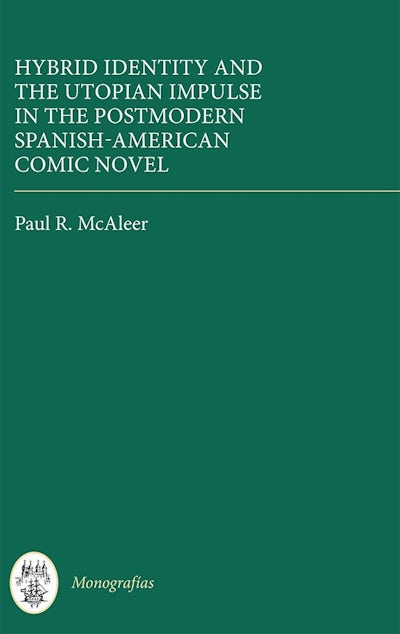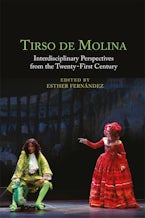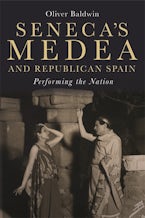
Title Details
180 Pages
23.4 x 15.6 cm
Series: Monografías A
Series Vol. Number:
351
Imprint: Tamesis Books
Hybrid Identity and the Utopian Impulse in the Postmodern Spanish-American Comic Novel
- Description
- Contents
The author examines the role of comedy in the novels of four key postmodern Spanish-American writers: Gustavo Sainz, Alfredo Bryce Echenique, Jaime Bayly and Fernando Vallejo.
An important but often overlooked function of comedy is its intrinsic relation to questions of identity. This relationship, furthermore, is connected to another traditional feature of comedy: the utopian impulse. This book analyses these functions of comedy in the novels of four key postmodern Spanish-American writers: Gustavo Sainz, Alfredo Bryce Echenique, Fernando Vallejo and Jaime Bayly. Focusing on the correlation between changing concepts of identityand the hybrid cultural context of the late 20th-century, it examines the issues of individual and social identities expressed by these authors in their inscription and distortion of the comic genre as well as in their usage of different modes of comedy. It views the novels' comic aspects as symptoms of hybridity, which, according to many theorists, have brought about the dissolution of concepts, such as the self and society, and utopian modernity. Thesesymptoms are studied in tandem with the individual themes of the novels, such as gender, sexuality, class and global migration, as well as the 'post-national' question of Peruvian, Colombian and Mexican identity.
PaulMcAleer is Lecturer in Hispanic Studies at the University of Hull.
An important but often overlooked function of comedy is its intrinsic relation to questions of identity. This relationship, furthermore, is connected to another traditional feature of comedy: the utopian impulse. This book analyses these functions of comedy in the novels of four key postmodern Spanish-American writers: Gustavo Sainz, Alfredo Bryce Echenique, Fernando Vallejo and Jaime Bayly. Focusing on the correlation between changing concepts of identityand the hybrid cultural context of the late 20th-century, it examines the issues of individual and social identities expressed by these authors in their inscription and distortion of the comic genre as well as in their usage of different modes of comedy. It views the novels' comic aspects as symptoms of hybridity, which, according to many theorists, have brought about the dissolution of concepts, such as the self and society, and utopian modernity. Thesesymptoms are studied in tandem with the individual themes of the novels, such as gender, sexuality, class and global migration, as well as the 'post-national' question of Peruvian, Colombian and Mexican identity.
PaulMcAleer is Lecturer in Hispanic Studies at the University of Hull.
Contextualising the Debate: The European Comic Tradition and the Question of Context
Gustavo Sainz's La princesa del Palacio de Hierro: Comedy and the Female Character in Transnational Mexico
Comic Identity and Cultural Exile in Bryce Echenique's La vida exagerada de Martín Romaña
Black Comedy and Identity Loss in Fernando Vallejo's La virgen de los sicarios: On the Road to Dystopia
Jaime Bayly's La noche es virgen: Comic Queer Identities in the Era of Transnationalism
Conclusion: Utopia, Comedy, and Latin American Utopianism: Is This Really the End?
Bibliography
Gustavo Sainz's La princesa del Palacio de Hierro: Comedy and the Female Character in Transnational Mexico
Comic Identity and Cultural Exile in Bryce Echenique's La vida exagerada de Martín Romaña
Black Comedy and Identity Loss in Fernando Vallejo's La virgen de los sicarios: On the Road to Dystopia
Jaime Bayly's La noche es virgen: Comic Queer Identities in the Era of Transnationalism
Conclusion: Utopia, Comedy, and Latin American Utopianism: Is This Really the End?
Bibliography
Hardcover
9781855662971
July 2015
£65.00 / $95.00
Ebook (EPDF)
9781782045601
July 2015
$29.95 / £24.99
Ebook (EPUB)
9781782045656
July 2015
$29.95 / £24.99
Title Details
180 Pages
2.34 x 1.56 cm
Series: Monografías A
Series Vol. Number:
351
Imprint: Tamesis Books












